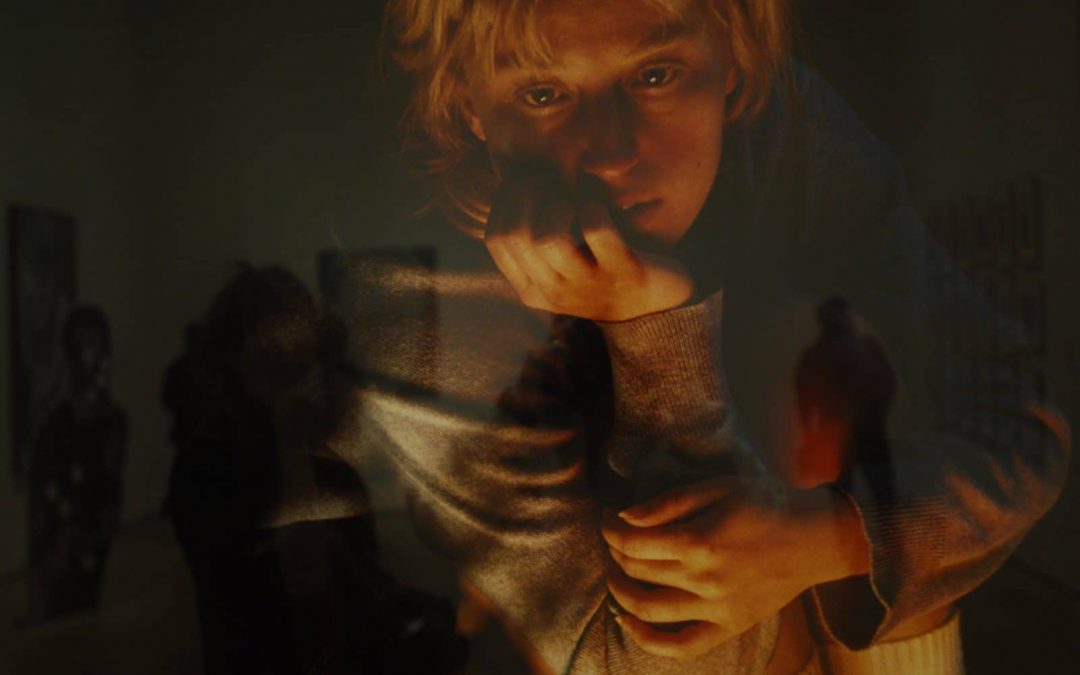Warning: Undefined array key 1 in /var/www/wp-content/plugins/monarch/monarch.php on line 4359
A note from Glenn: From battling demons to helping others. What’s it like inside the suicidal mind? This is my friends story. He is a remarkable man who is extremely intelligent, witty, attractive, and possesses a great sense of humor. But, despite these incredible gifts, he has battled tremendous demons in his past that has sought to destroy him, leading him to attempt suicide 5 times. This is his remarkable story… a story that I believe we all can identify with and learn from. Often, getting from point A to point B is not a straight line, but filled with various detours and occasional dead-ends along the way. Often these challenges lead to new, life-enhancing, fulfilling paths. Thank you my friend for having the courage and strength to share your lessons and experiences with us. You are very much appreciated.
How did you get to the point of wanting to end your life?
I had a void in my head and soul that filled my life. It really doesn’t matter why you have one or when you get it. I think we all do as human beings. Some deal with their voids better than others.
At a very young age I found out that alcohol could fill my void. The very first time I drank I felt normal for once in my life. I remember saying to myself, “So this is what it’s like to be normal… this is what real people feel like.”
Over the next six years I went to five or six rehabs after remaining sober for 17 years. At this time my mom was getting increasingly depressed. I started drinking again prior to her suicide. I don’t blame her suicide on my drinking.
I’m not sure why my void reappeared again. Perhaps her depression and suicide just picked the scab off of it. Whatever the case, I didn’t deal with it in a good or healthy way. I became seriously depressed and suicidal once again.
What do you remember about your last suicide attempt?
All I remember is being curled up in a ball, unable to move, wanting and wishing nothing more than to cease existing. A sense of loneliness and isolation consumed me like an empty abyss barren of all feeling and emotion. I couldn’t see. I couldn’t see anything but darkness.
It felt so dark that even if the sun were in a room next door and the door were cracked open, light wouldn’t be able to escape. It was as if God himself had put me on an island in the middle of the worst possible nightmare.
I’m a person that got to the jumping off point 5 times and survived. By jumping point I mean suicide. So why didn’t I stop after the first time? I’ll give you a perfectly good explanation.
The power of my addiction kept pulling me back into the behaviors that I used to fill the void.
Had that not happened, I believe that my first attempt would have been my only. I shouldn’t be here to share this story, but I am, and I’m grateful for that.
The first four times I attempted suicide I used a various mix of heavy sedatives washed down by a fifth of vodka. With each attempt I upped the amount of pills, causing me to go into seizures bad enough to be taken immediately to the hospital. There they would put me on a ventilator, stop the seizures, and charcoal my system, saving me from the brink of death.
My final attempt was to not do it the same way I had on previous occasions. I had a friend, Josh, successfully commit suicide by hanging himself. With this in mind, my final attempt was to hang myself in my garage.
A very intuitive friend of mine who also knew Josh caught on to me and called the Fire Department. They came and pulled me out of the noose after I had passed out. I was still breathing. I spent the next 2 to 3 weeks in the hospital afraid to leave, not sure what I would do on the outside.
That was over 6 years ago.
What thoughts went through your mind that night?
There’s nothing to say about that night or any of those nights to make it sound all detailed, planned, or flowery. I was damn near amnesia and so depressed the only thing I remember is darkness and wanting to escape.
There’s the endless feeling is that everyone is better off without you.
When you’re in the anguished depths of depression you completely dissociate from everything. Details of what you’re doing, the objects around you, and any other human beings that are in your life doesn’t come into play.
The only thing that matters is the matter at hand which is “I want to get off this planet.”
Severe tunnel vision sets in. You walk by the house that your wife and son are sleeping in and don’t even think about them. You go directly into the garage not thinking about the garage or what you’re doing. You don’t see your car, think of your family or friends, or even recognize that you don’t notice anything.
You just remember to close the door and go about ending the pain. That’s all you’re thinking about. There’s no rational thinking, no contemplation, no digging deeper.
This is as deep as it gets with suicide… thoughts of completion. You believe you are a burden.
Were there other emotions you experienced?
Hope, a feeling of what was once craved and wished for, now turns into a simple death wish. It’s your one and only true hope. You have a single mindedness of purpose.
The mental anguish is indescribable. There’s an inability to feel any emotion whatsoever, a complete emotional VOID. This is as close as I can get to explaining it.
If I were to remember even the slightest details of that night I probably would not have attempted suicide. But the fact of the matter is your brain goes on autopilot and it’s almost like an amnesia episode.
You’re in a bubble from the world… a very deep, dark bubble. That’s the best way I can explain it. Nothing can get to you and you can’t get to nothing. You have one goal in mind, and that’s it.
It’s at this point typically that you decide. It’s not a matter of will. It’s simply a matter of when, where, and how.
You’re at the jumping off point.
I remember the entire process as being quite easy.
What’s your memories of being rescued and waking up in the hospital?
My first memory was in the back of an ambulance. I vaguely remember two big guys carrying me out. I believe these were the same firemen that lifted me out of the noose.
I have a history of seizures so I was heavily sedated at the hospital. I woke up tied down to the bed, feet and arms strapped. There was a person in the room, a sitter, to watch me. This is standard procedure in suicides.
My throat and neck hurt like crazy. That big, thick, one-inch burlap rope makes for a terrible neck massage. If you don’t jump high enough attempting to break the rope, which I found out is real high, you simply suffocate.
My head hurt enormously. To this day I still have two scars and marks on me from falling. They must have dropped me pulling my head out of the noose.
I had six staples put in my head. I think I hit the trailer hitch or something when being put into the ambulance. That’s what I was told.
I did not have visitors while hospitalized. I asked not to have any once I was transferred. I was still way too foggy and incognizant to the incident.
I didn’t have gratitude nor did I have anger.
What I did have however, was fear.
What did you fear? Did you experience the feeling of shame?
I was afraid to leave because I thought if I left the institution I would most certainly destroy myself. I had worn out my family, my father, my brothers, my sisters, my wife, and my friends. I wasn’t looking for any attention. I wasn’t looking for pity. I wasn’t looking for anything.
I asked the doctor how long I was going to have to stay. He told me every time I asked that question he was going to add another two days to my stay. In very rapid fire form I asked the same question about 20 times.
I didn’t want to leave.
I slowly came back to life over time. Did I feel shameful? Sure… but sometimes the shame is covered by such a huge cloud of depression you don’t get a chance to feel it. Typically shame kicks-in later on, about 2 or 3 months down the road. At about at the same time gratitude kicks in.
You get the sweet with the sour.
The gratitude of being alive again creeps back in slowly. I don’t know if the brain is designed that way or what, but that’s typically how it works. It’s how I’ve see it work with other people. They have no shame, feel no shame, and don’t think they did anything wrong until they start to become grateful.
What have you learned from your experiences that you can share with others?
I know one thing for sure. Self awareness, the ability to identify your voice, and the realization that you need to change, means life or death.
People work their entire lives at a job. Their social contacts, their identity, pretty much everything about themselves is built around that job. What if they lose it? What if they retire? What if their life partner passes? They will need to find purpose and direction in their lives.
Let me define purpose and direction. IT’S NOT ABOUT YOU! The point of being here is to be of service and to interact with others. To show love and to give love as much as possible. It’s very difficult to do that from a casino, a bar stool, in strip clubs or with any sex addiction.
I have seen many people retire or lose their jobs and discover that there’s a void. They then discover things that makes them feel good, medicate that void, and patch the hole quickly. This will only work for a certain length of time.
You’ll look forward to having that fast release, catching that quick buzz, going to the horse track, etc. These activities will work for a short while, taking you outside of yourself so you’ll forget that there’s this deep void inside that’s getting larger.
What can a person do if they’re struggling with thoughts of suicide?
My story would be meaningless if I didn’t provide some important tools for people to use. First and foremost, if you have the slightest inkling that you might have a problem, you probably do. You can double check this by talking to close friends and family members and asking their opinions. Just remember they may say things you don’t want to hear so try not to get too angry or disturbed.
There are 12-step programs out there for just about everything. Utilize them. Therapy is mandatory. This is where you’ll discover why you have a void in the first place and the reason your medicating it.
Remember: you’re as sick as the secrets you keep.
Next, you need to find your own higher power that you can trust implicitly. You don’t have to be religious but this power needs to be greater than yourself. Realize that there’s a loving, forgiving, and merciful God available to all of us.
Think of your own relationships with your children. Would you want anything bad to happen to them? Would you shame or make them feel terrible about a mistake they made? Or, much like the prodigal son, would you forgive, hug, hold and love them because they returned to you in one piece?
That’s how my God feels about me. My suggestion to you is to write down everything you would want God to be for you and use that as your higher power.
If you’re not comfortable with the word God, and most people aren’t when they first get well, use whatever works for you. If you believe in karma, then go with that. If you’re not monotheistic by nature, and indulge yourself in pantheism where you see God in everything and everywhere, use that.
If you happen to be an atheist, use your group, some support system, your therapist, and/or your intellectual toolbox to stay well. You do not have to take on the “shame game” of your religious youth if it occurred.
But remember: IT HAS TO TO BE MORE POWERFUL THAN YOU.
What can a person do to take care of themselves and reduce the risk of suicidal thoughts?
These are the four activities I suggest you do on a regular basis to take care of yourself. Make these part of your daily routine. Work at them until they automatically become a part of who you are.
1. Each morning on a daily basis start your day with some form of ritual reading or meditative process to get in touch with your higher power.
2. Jump at the chance to be of service to other human beings on this planet. You can do just about anything to help people… just give it a try.
3. Avoid isolating. Go out and be among the truly amazing and interesting people that exist in this world. Make friends and interact with everyone you can. Make sure your alone time is not lonely time. You should be serene when you’re alone. Use this time to re-energize, fortify and get in touch with your higher power.
4. Lastly, stay physically active. Take care of your body with movement and watch what you eat. The better you take care of yourself the better you’ll feel about yourself. Your energy level will improve and you’ll start thinking more clearly. If you start feeling depressed or blue, get outside for some fresh air. Stretch your legs… go for a walk. It will make a world of difference in how you feel.
In conclusion, your toolbox should contain tools that take care of your mind, body, and spirit.
One last note: look around you. If you see people, family or friends that you even remotely suspect are stuck in a void, or headed towards the abyss, approach them. Talk to them.
Be the best listener you can be. Try to get them to open up even if you have to go out and buy the biggest can opener you can find. You can never judge someone’s insides by their outsides.
You can save lives. You have that power, I have been doing 12-step work day-in and day-out. I also do work with the mentally ill. There is a tremendous stigma society attaches to these people.
I know I’ve saved lives. I’ve also watched people die right in front of me. In my 30 years of living this way I’ve probably taken two to three hundred men to hospitals and psych wards.
I am NOT saying this to brag. It’s also helped me stay in line, stay focused, and has served as a constant reminder of what my life could be like. I believe I am simply a channel. I open up that channel so that my higher power can work through me.
What gets channeled? It’s the grace and compassion that allows me to love people no matter how broken they are. It’s also the desire and strength to help these people in any way I can and carry through to the end.
You can intervene. You can give someone hope who has none. You can nurture them back from hopelessness, back to hopeless, then back to hope. And give them the proper tools to live and thrive in a healthy and meaningful way.
You can make a difference in someone’s life.
Never forget that.
Suicide Facts:
- Suicide is the 10th leading cause of death for Americans.
- After cancer and heart disease, suicide accounts for more years of life lost than any other cause of death.
- In 2013, the highest suicide rate (19.1) was among people 45 to 64 years old. The second highest rate (18.6) occurred in those 85 years and older (per 100,000 people).
- In 2013, men had a suicide rate of 20.2, and women had a rate of 5.5. Of those who died by suicide in 2013, 77.9% were male and 22.1% were female.
- White males accounted for 70% of all suicides in 2013.
- In 2013, firearms were the most common method of death by suicide, accounting for a little more than half (51.4%) of all suicide deaths. The next most common methods were suffocation (including hangings) at 24.5% and poisoning at 16.1%.
Need help? Call:
National Suicide Prevention Lifeline
United States: 1 (800) 273-8255
Hours: 24 hours, 7 days a week
Languages: English, Spanish
Website: www.suicidepreventionlifeline.org
Did you enjoy this post? Please share it with others!
I’m a self-professed madman, adventurer, photographer, certified High-Performance Coach, martial artist, and licensed physical trainer specializing in senior fitness. My passion is to continue growing and developing into my own unique, gifted, and joyful authenticity, while committing myself towards doing my own special part to help change the world. My mission is to help others find their own direction and purpose in life, by means of mentoring, teaching, and empowering.








I loved the articles. Here is the story of my friend …
On a Sunday night, as I was sneaking a piece of See’s chocolate, I received a call around 10 p.m. from a close, lifelong friend. Numbed with alcohol and slurring his words, he announced that he had called to say good-bye, as he was standing on his fifth-floor balcony ready to jump to the concrete sidewalk. Even though I was trained for such emergencies (I had completed a psychiatric residency before progressing into public health administration), my mouth turned to cotton. The piece of chocolate grew difficult to swallow. Before I could say anything, my friend set the parameters for our telephone call. Although intoxicated, he was still mentally sharp. He explained that he would talk to me on two conditions. First, I had to promise that I would not attempt to call 911 with any behind-his-back attempt to abort his suicide. Second, I would not try to talk him out of his jump. So, with those demands, what would you do? Accept the ultimatum and talk as a friend? Or make an attempt to call for assistance?
I elected to meet his conditions. Over the next hour and a half on the phone, as I moved from our kitchen into our empty living room, I sat in the dark, making no attempt to call 911, nor any attempt to talk him out of his suicide. Instead, I simply listened, offering a sympathetic ear. He talked about the death of his wife (she had died three years earlier) and his lingering grief. He reviewed his life’s many setbacks, including his financial setbacks in the stock market crash in 2007, the continued financial losses over the subsequent years, and his current financial predicament as he was behind in his taxes. He shared some of his physical complaints about a replaced hip and a balky knee; and he focused on the depression of his growing age (he was getting ready to turn sixty) with his sense that life was “closing down.” He felt as if his attempts at happiness had slipped through his fingers, never to be retrieved. He felt as if he had made too many mistakes with no hope of correcting those missteps or finding a path that would give him a chance for a better life. Too much money had been lost. Health had been wasted. Relationships had been damaged. He expressed a hope for better relationships, but he expressed concern for his two adult children and their future. His opportunities for a better relationship with them had been partially repaired, but not to his full satisfaction. Other friendships had disappeared. He saw the concrete as an end to his pain, an escape to the solace of cremation and ashes.
At one point in our conversation, he did not say anything for over a minute. I worried that he might be pouring himself another drink or perhaps climbing the railing, preparing to jump. When he finally spoke, he surprised me. No, he had not changed his intention to leap. Instead, he wanted to discuss the plans for my future. He had heard that I was trying to redesign my life and that I was trying to write a survivor’s guide or as he described it “a prescription without any pills” so baby boomers could improve their health, but more importantly their lives, by redesigning themselves, their families, and their world. He listened without saying a word for almost five minutes, as I explained my desire to reshape our baby boomers by offering a guide that did not depend on our medical or pharmaceutical industry. At the end of my rambling, to my surprise, he said my suggestions were the best prescription that he had ever received from a physician and that he had received far too many prescriptions in his life. Then he did something equally unexpected. He demanded a promise: as a lifelong friend (who had picked him up at the airport and rushed him to the hospital for the birth of his first child), would I promise to develop my thoughts, write my suggestions, and publish my guide? Would I consider setting up a web site (now The Boomer Health Institute) to help the baby boomers redesign themselves, their relationships, and their lives? He lamented how there were so many struggling individuals, pushed to the brink, who needed a renewal of themselves, their family, and their lives. Sitting in pitch darkness on the living room sofa, I made that promise.
At this point his mood seemed to lift. But did it lift enough? In truth, I would have needed more details and a much clearer, more refined discourse to snap him out of his depression. Through his cell phone I could hear the noise of passing cars and the barking of his dog. At that point he thanked me for not calling 911; he congratulated me for not trying to talk him out of suicide; and he said good-bye, abruptly hanging up his cell phone. Unsettled and unnerved, I did not call the police. I sat in the dark for an hour and finally went to bed well after midnight, sleeping fitfully. Did my friend, Jeffrey Knight, jump to the concrete that night? In mid morning, as I was finishing my coffee and trying to shake myself out of my doldrums, I received a telephone call. My nerves twisted into an even tighter coil until I finally heard the sound of his voice. No, he had not jumped. He had decided to seek help, and he was checking into a hospital.
Did his psychiatric treatment rescue him? He spent three days in the psychiatric ward, receiving an antidepressant and an antianxiety agent. On the third day, he did not feel much better, and maybe he felt even worse from the side effects of the psychiatric medications. On that day’s rounds the psychiatrist asked him if he were still feeling suicidal. He knew what he had to say. He lied. Once released from the psychiatric unit, he returned to his apartment, opened a bottle of vodka, and resumed drinking. On the next morning, after a twenty-hour alcohol binge, he climbed the railing and jumped to his death. Before this jump, did he place one final call to me? Unfortunately, no. For the next week, I kept asking myself: Why had he not placed just one more call to me? At his memorial service on the beach, the answer came to me. He knew what I had to offer. He liked the basic points of my guide. But without my suggestions more developed, without my prescription better refined, and without my web site up and running, would it have been enough to change his mood or his attitude? At the time of his jump, probably not. But now, with this book finished and with The Boomer Health Institute web site established, my opinion is different. If time could have been frozen, and if he had called me today, I am convinced that my new knowledge (like Glenn’s stories with many insights) would have aborted his suicide. With this belief, this book, and with more exploration of web sites (like Glenn’s), I am keeping my promise to offer the baby boomers a path to a better life so that you too don’t have to “go out in mid-sentence.”
Thank you my friend for your very moving story. Sadly, a life was lost, but your friend may of somehow known on a greater, grander scale that his life, in exchange for your pledge to complete your very well written Boomer Survivor Kit (which I’ve read and highly recommend for all Boomer reading (http://boomerhealthinstitute.com/), was, in effect, a benefit for the masses. Perhaps, just perhaps, this wonderful book of yours may have never been completed had he not ended his life. In turn, your book may save and serve the masses, and perhaps has already saved lives. I applaud you Dr. Bill Courter for having the courage, strength, and fortitude to complete and gift the world with this wonderful work of yours. Your friend must be so proud of you…
Very well written I can relate to every thing you’ve said as I have a brother who suffers from depression mental illness and for a long time could not relate to his needs but since I retired I see life as it is now I’m awake,and have more empathy and give him more time, I have stopped now and looking back over the last almost sixty years what was that all about that time has shot by and when you’re awake,and of. Service to someone time is going even faster I sometimes feel I’m on a roundabout looking for the right exit.I always enjoy and look forward to your articles, Best Regards Thomas
Thanks for your comments Thomas. Compassion is a great tool to have in your toolbox. Good luck on your journey. I’m glad I can be of some service to you…
Great ingtshi. Relieved I’m on the same side as you.